Smelly odour is a common problem faced by many people. It can be caused by a variety of reasons, such as poor hygiene, bad food, or even medical conditions. However, there are many words that can be used to describe a smelly odour, and in this article, we will explore some of these words.
Stinky
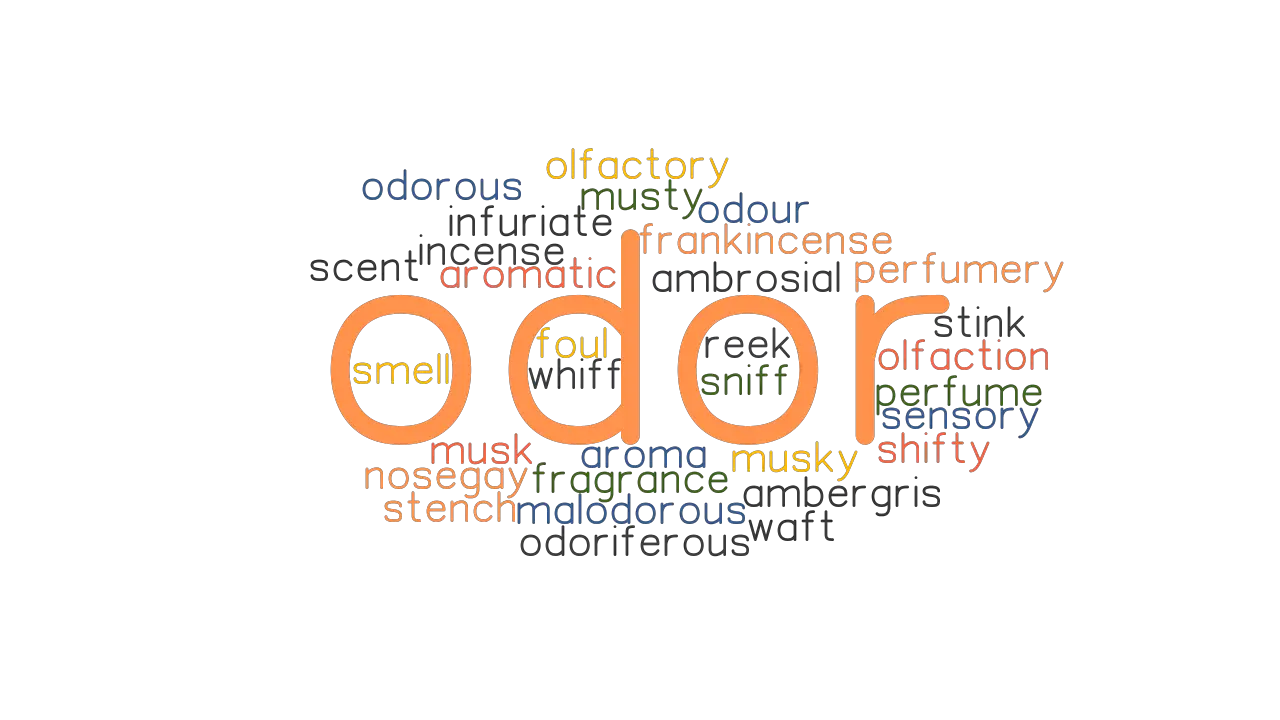
Stinky is a word that is commonly used to describe a bad odour. It is often used to describe smells that are unpleasant and offensive, such as the smell of rotten food or dirty socks. The word stinky is also used to describe the smell of animals, such as skunks.
Foul
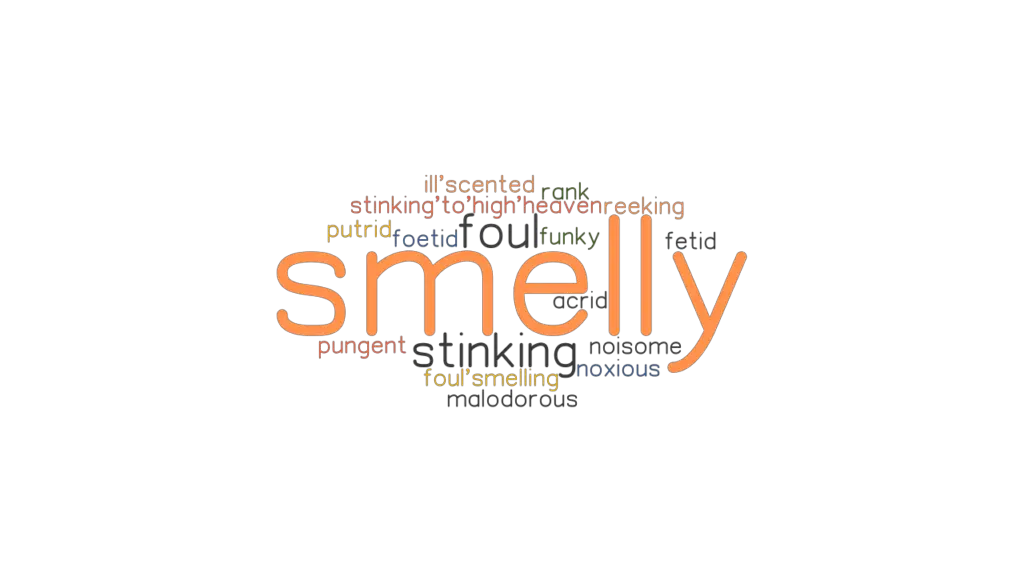
Foul is another word that is commonly used to describe a bad odour. This word is often used to describe smells that are offensive and disgusting, such as the smell of sewage or rotten eggs. The word foul can also be used to describe the smell of body odour.
Pungent
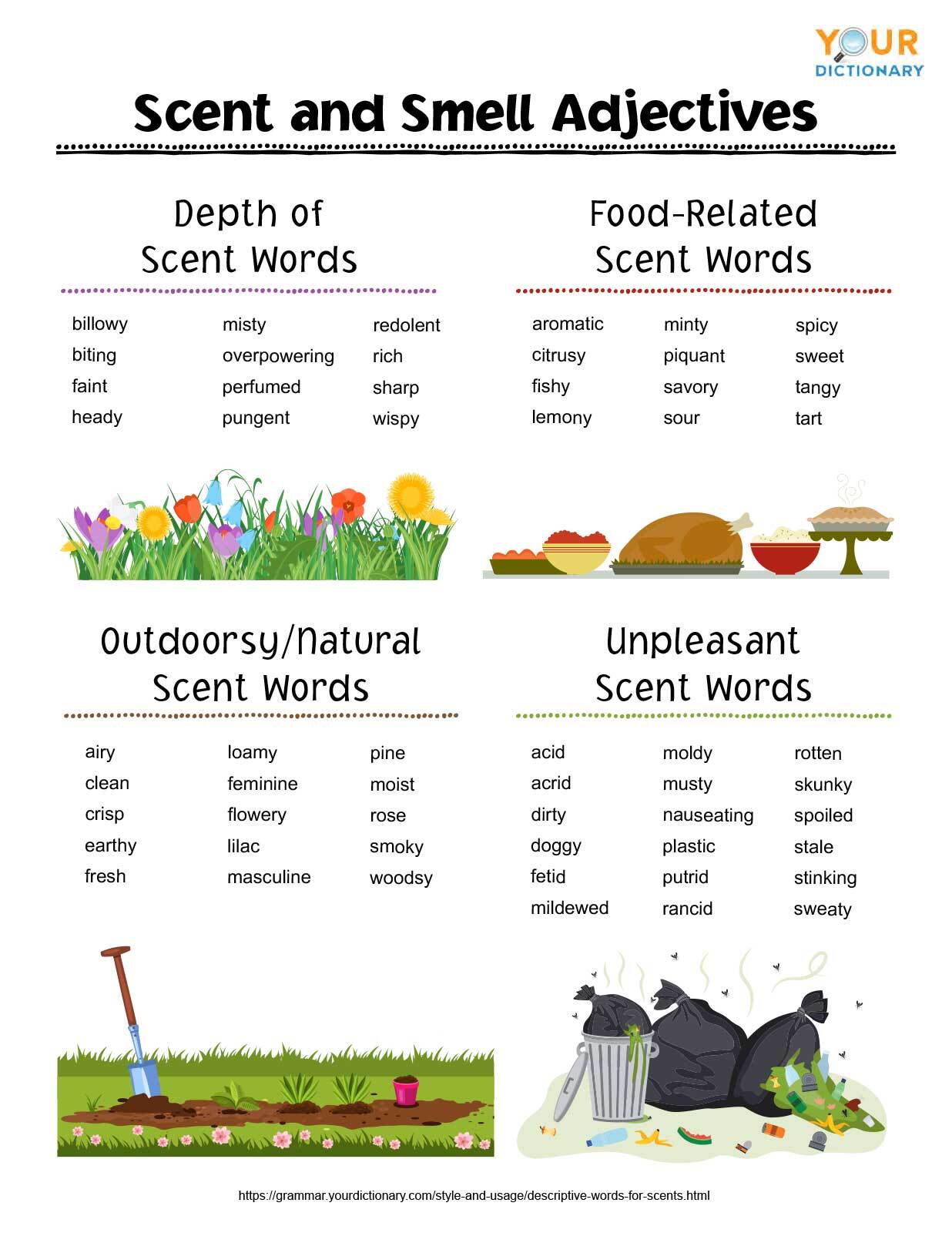
Pungent is a word that is often used to describe a strong and sharp odour. This word is commonly used to describe the smell of spices or strong perfumes. Pungent can also be used to describe the smell of body odour or the smell of urine.
Rancid
Rancid is a word that is commonly used to describe a bad odour that is caused by the decomposition of fats or oils. This word is often used to describe the smell of spoiled food, such as rancid butter or rancid meat.
Putrid

Putrid is a word that is commonly used to describe a bad odour that is caused by the decomposition of organic matter. This word is often used to describe the smell of rotting flesh or decaying plants. The word putrid can also be used to describe the smell of garbage.
Rank
Rank is a word that is commonly used to describe a bad odour that is strong and offensive. This word is often used to describe the smell of body odour or the smell of dirty clothes. The word rank can also be used to describe the smell of urine or animal feces.
Malodorous

Malodorous is a word that is commonly used to describe a bad odour that is unpleasant and offensive. This word is often used to describe the smell of sewage or garbage. The word malodorous can also be used to describe the smell of body odour or the smell of rotten food.
Fetid

Fetid is a word that is commonly used to describe a bad odour that is strong and unpleasant. This word is often used to describe the smell of decaying organic matter, such as dead animals or rotting plants. The word fetid can also be used to describe the smell of body odour or the smell of urine.
Reeking
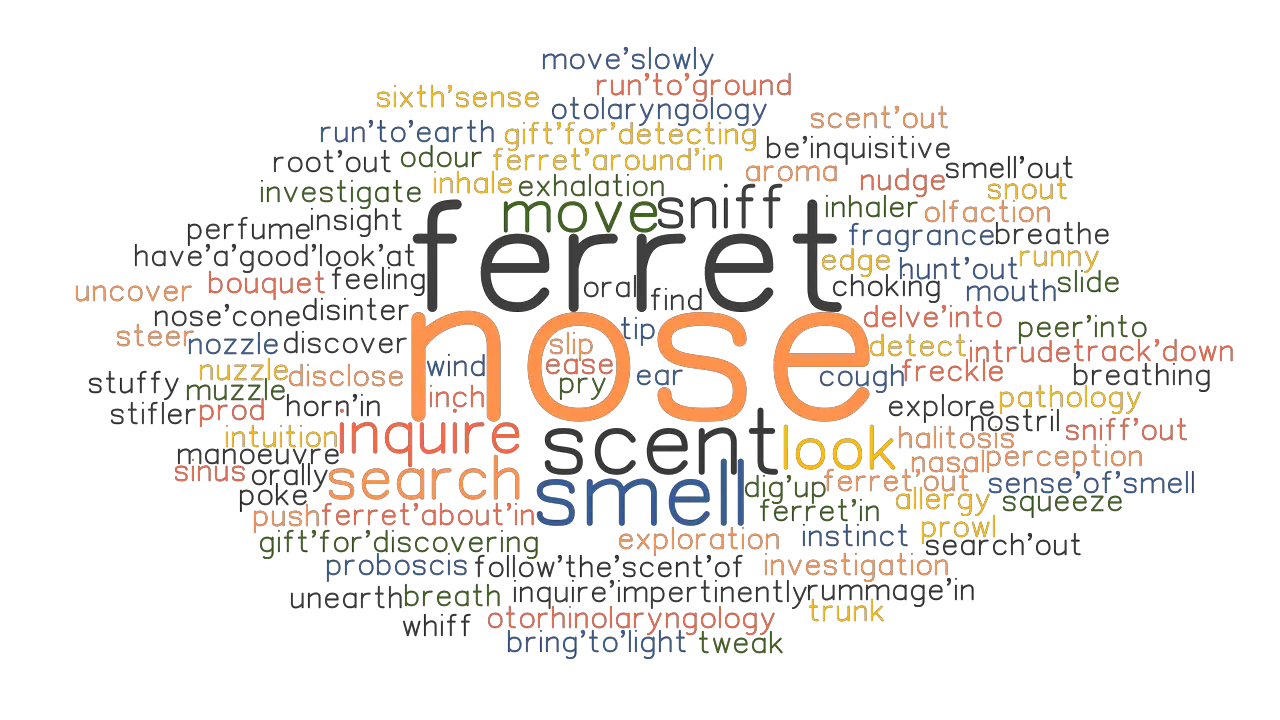
Reeking is a word that is commonly used to describe a strong and offensive odour. This word is often used to describe the smell of smoke or alcohol. The word reeking can also be used to describe the smell of body odour or the smell of urine.
Funky

Funky is a word that is commonly used to describe a bad odour that is unpleasant and unusual. This word is often used to describe the smell of old clothes or shoes. The word funky can also be used to describe the smell of body odour or the smell of urine.
Conclusion
In conclusion, there are many words that can be used to describe a smelly odour. Whether it is stinky, foul, pungent, rancid, putrid, rank, malodorous, fetid, reeking, or funky, these words all describe a bad odour that is unpleasant and offensive. By using these words, you can more accurately describe the odours that you encounter in your daily life.
Related video of Another Word For Smelly Odour

Introduction
When someone asks you a question or makes a statement, one of the most common ways to reply is by giving a response. But what if you want to use a different word for response? In this article, we will explore some alternative words that you can use instead of response.Answer
One of the most common synonyms for response is answer. When someone poses a question to you, you can provide an answer to their query. An answer is a reply that provides the necessary information to satisfy the person's curiosity.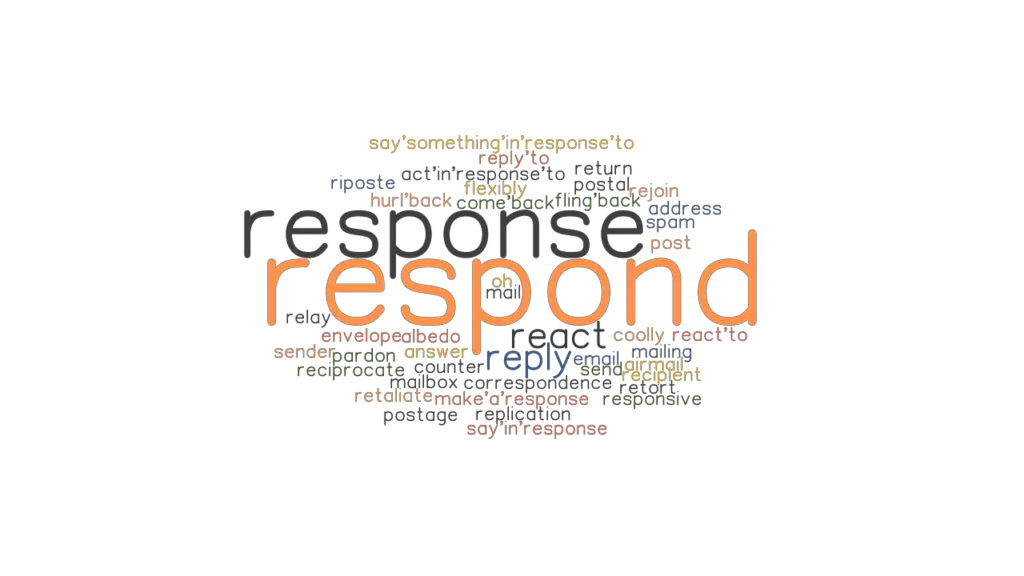
Reply
Another word for response is reply. A reply is a response to a specific question or statement. When you reply to someone, you are acknowledging what they said and providing a response that is relevant to the conversation.
Reaction
A reaction is another word that can be used instead of response. When you have a reaction to something, you are responding in a way that is emotional or physical. For example, if someone tells you a joke, your reaction might be to laugh.
Feedback
If someone is looking for your opinion on something, you can provide feedback. Feedback is a response that is designed to be helpful or constructive. For example, if your boss asks you to review a report, you can provide feedback on what you think could be improved.
Retort
If you are in a conversation or argument with someone and they say something that you disagree with, you can provide a retort. A retort is a sharp, witty response that is designed to challenge what the other person has said.Counter
When someone makes a statement that you disagree with, you can provide a counter. A counter is a response that offers an alternative perspective. For example, if someone says that they don't like a particular movie, you can provide a counter by explaining why you think it's a great film.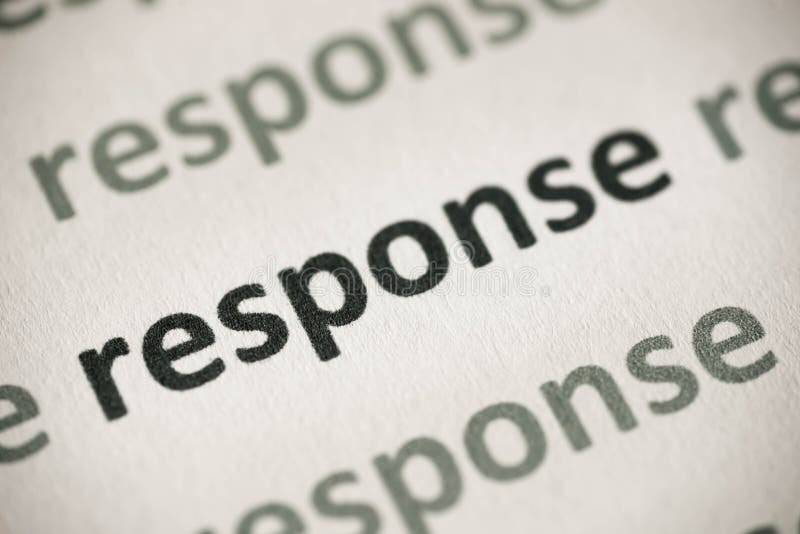
Acknowledgment
An acknowledgment is a response that indicates that you have heard what someone has said. This type of response is often used in formal settings, such as in business emails or during meetings. When you acknowledge someone, you are letting them know that you have received their message.
Confirmation
When someone asks you a question that requires a yes or no answer, you can provide a confirmation. A confirmation is a response that confirms or denies what the other person has said. For example, if someone asks if you are available for a meeting, you can provide a confirmation by saying yes or no.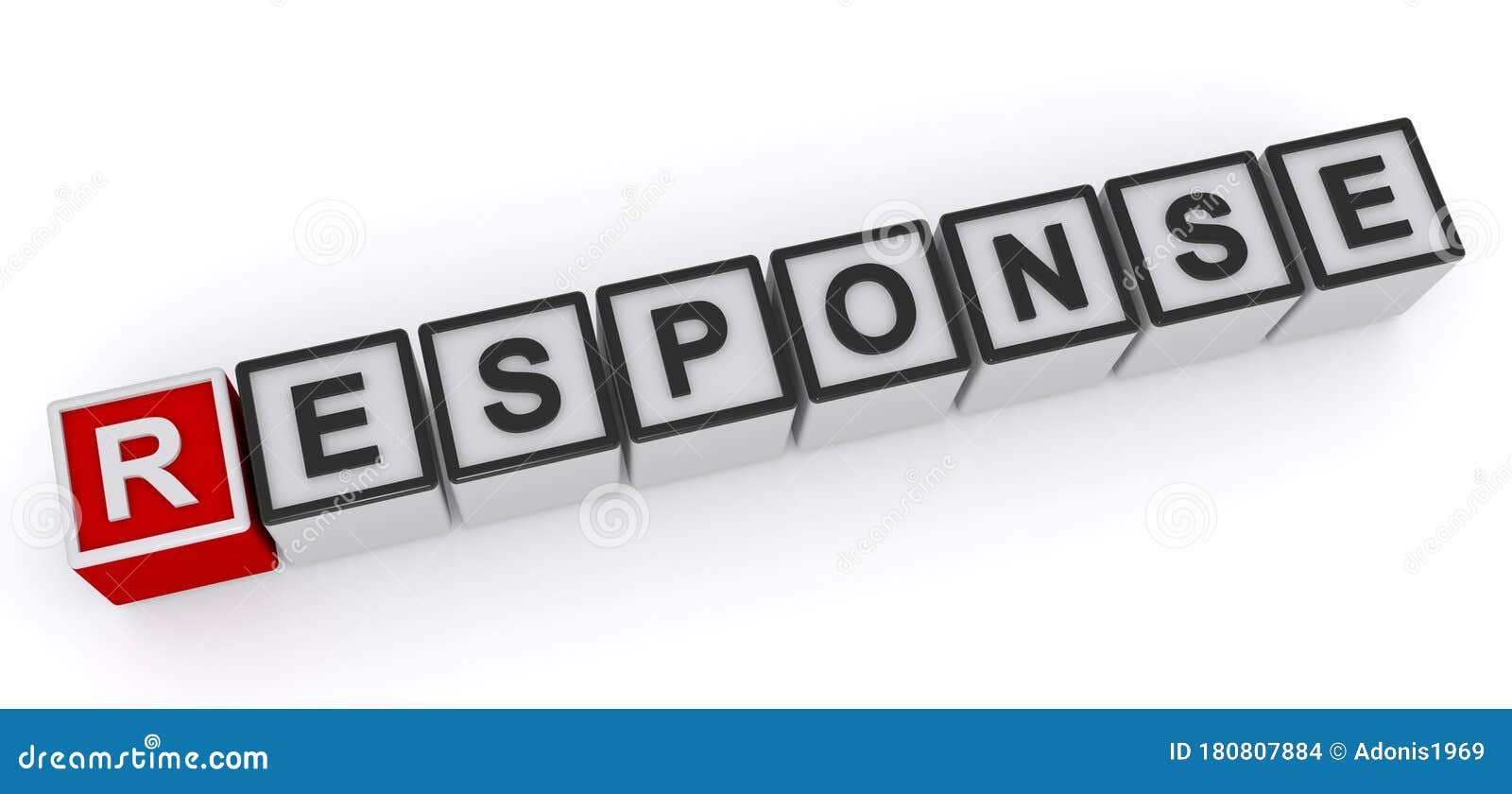
Conclusion
In conclusion, there are many alternative words that can be used instead of response. Whether you provide an answer, reply, reaction, feedback, retort, counter, acknowledgment, or confirmation, the important thing is to provide a relevant and appropriate response to the conversation or situation.Related video of Another Word For Response
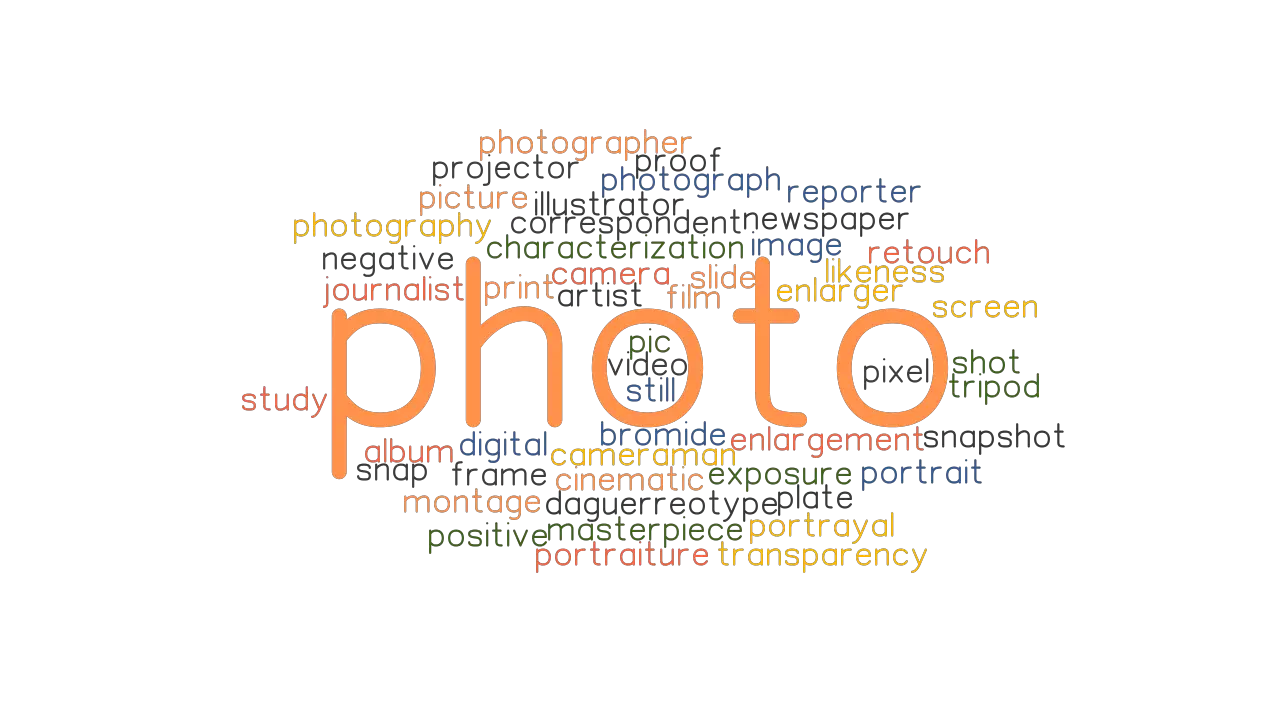
Introduction
Photography is an art form that has been around for a long time. It is a way of capturing moments, emotions, and memories that can be shared with others. But, did you know that there are other words for photography? In this article, we will explore some of the alternative terms used to describe the art of capturing images.Snapshots
One popular term for photography is snapshots. This refers to the quick, informal, and candid shots that capture a moment in time. Snapshots are often taken without much thought or planning and are often shared on social media or with friends and family.
Portraiture
Another word for photography is portraiture. This refers to the art of capturing a person's likeness, usually their face, in a photograph. Portraiture can be formal or informal and can be used for everything from family portraits to professional headshots.Landscape
Landscape photography is another term used to describe photography. This refers to the art of capturing the beauty of nature in a photograph. Landscape photography can be used for everything from wall art to postcards.Street Photography
Street photography is a term used to describe photography that captures the everyday life of people in public places. It can be used to document the culture and social life of a city or town.
Black and White
Black and white photography is a timeless art form that has been around since the beginning of photography. It is a way of capturing images that are devoid of color, but still full of emotion and depth.
Macro
Macro photography is a term used to describe photography that captures small objects or details up close. It is often used to capture the beauty of flowers, insects, and other small objects.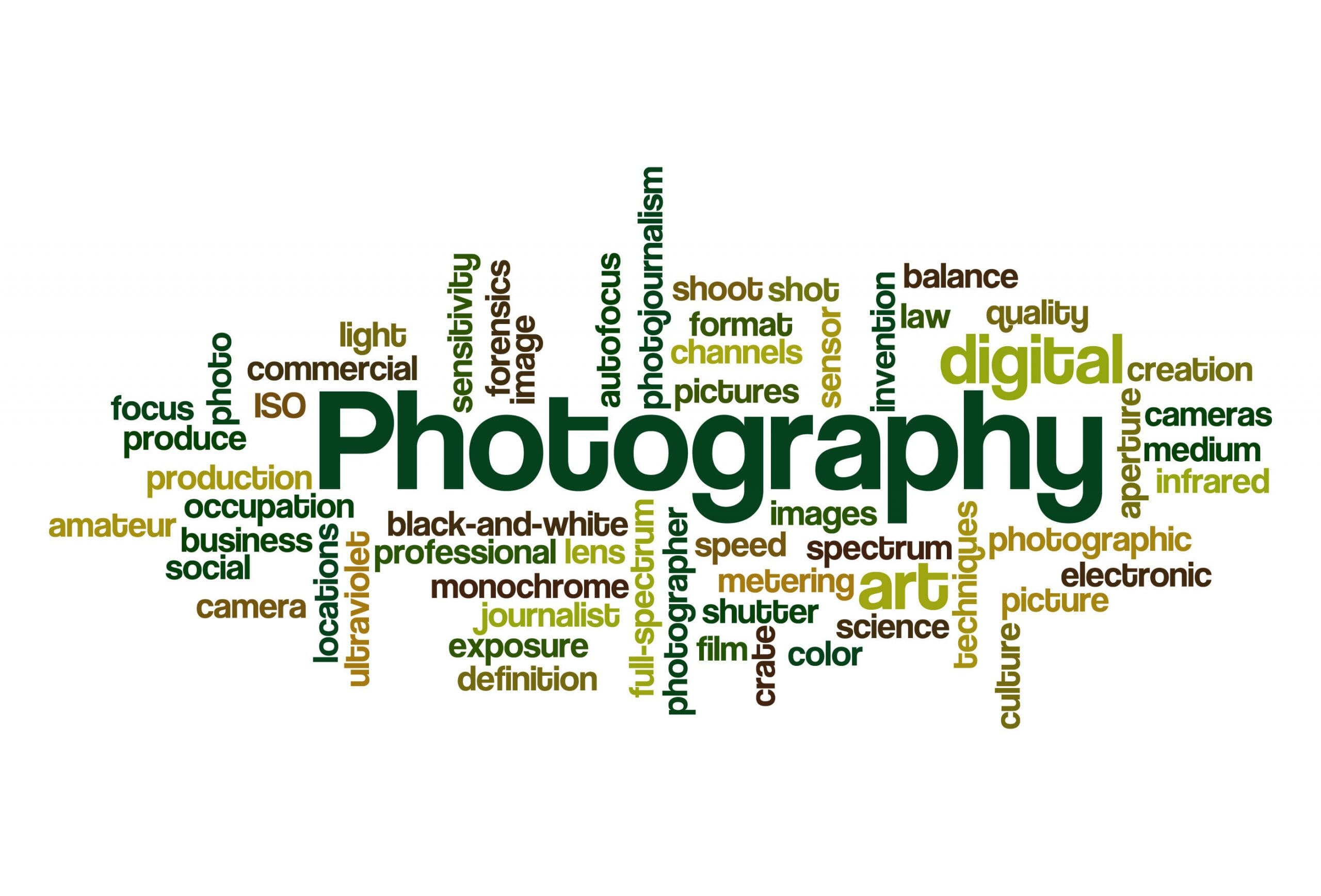
Documentary
Documentary photography is a term used to describe photography that captures real-life events or situations. It can be used to document everything from social issues to political events.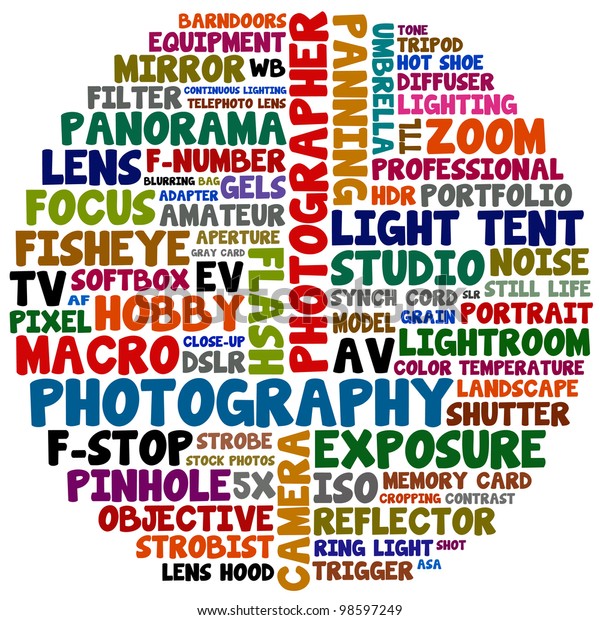
Fine Art
Fine art photography is a term used to describe photography that is created with the intention of being displayed as art. It is often used by photographers to express their artistic vision and creativity.Conclusion
Photography is a diverse and creative art form that can be used to capture a wide range of images and moments. Whether you are interested in portraiture, landscape, or street photography, there is a word for every type of photography. So, the next time you pick up your camera, think about the different words that can be used to describe your art.Related video of Another Word For Photography
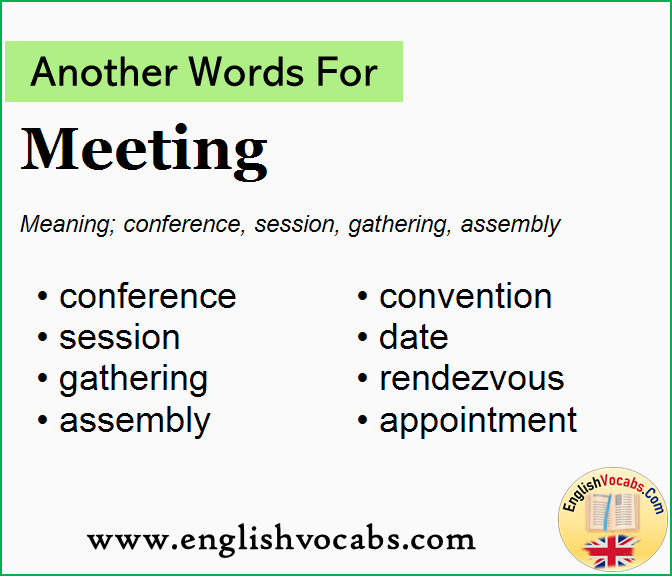
Meetings are an essential part of communication in any business or organization. They serve as a platform for sharing ideas, discussing strategies, and making decisions. However, the word "meeting" can sometimes sound too formal or generic. In this article, we'll explore some alternative words you can use to replace "meeting."
1. Conference

A conference is a formal meeting of people with a shared interest or profession. It usually involves presentations, discussions, and networking opportunities. Conferences are often held at a specific venue, and attendees can be from different countries or regions.
2. Gathering

A gathering is a more informal meeting of people who come together for a specific purpose. It can be a social or business event, and attendees can be friends, family, colleagues, or clients. A gathering can be held at someone's home, a restaurant, or a public place.
3. Consultation

A consultation is a meeting between two or more people to exchange ideas or seek advice on a particular topic. It can be a one-on-one or group discussion, and the participants can be experts, professionals, or stakeholders. Consultations are often held in a formal setting, such as an office or a conference room.
4. Summit
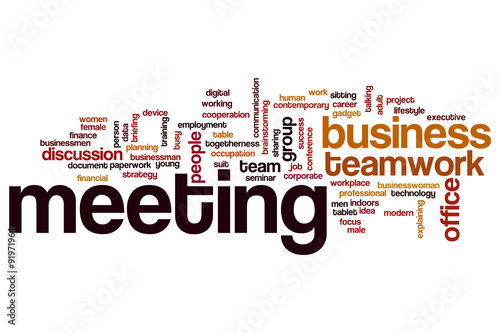
A summit is a meeting of leaders or representatives from different countries or organizations. It usually involves high-level discussions on global or regional issues, such as politics, economics, or security. Summits can be held at a specific venue, such as a hotel or a government building, and can last for several days.
5. Briefing
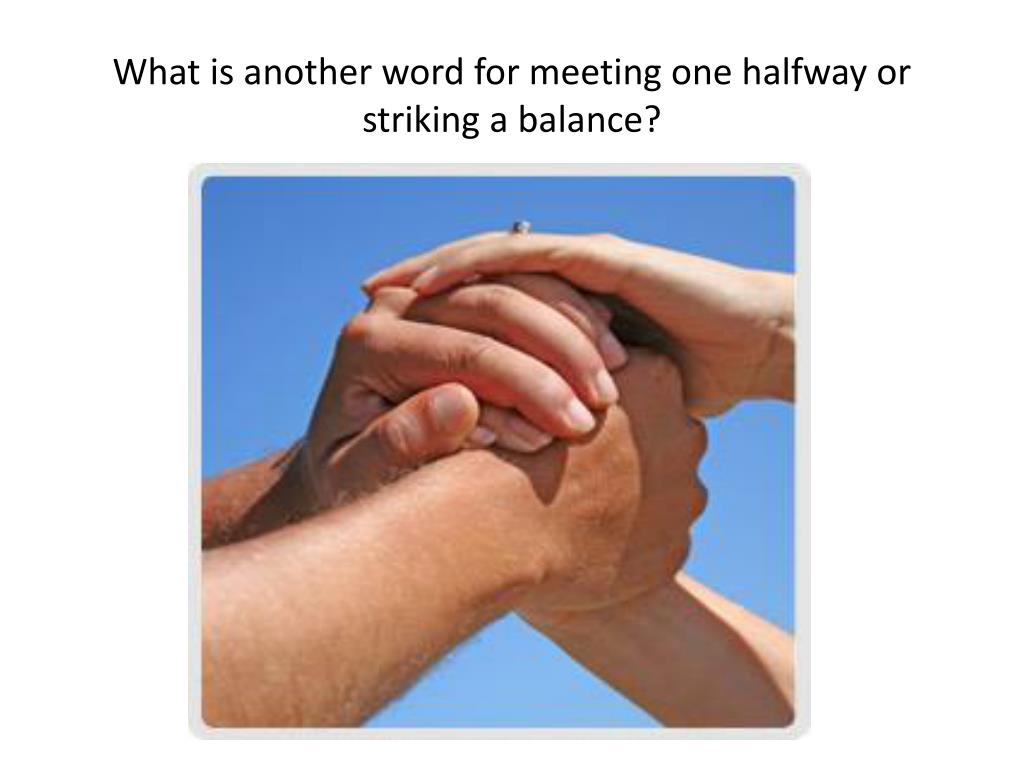
A briefing is a meeting where someone provides information or instructions to others. It can be a formal or informal session, and the participants can be employees, colleagues, or clients. Briefings are often held in a specific setting, such as an office or a conference room.
6. Huddle
A huddle is a quick and informal meeting of a small group of people to discuss a particular issue or make a decision. It can be held in a common area, such as a hallway or a break room, and can last for a few minutes. Huddles are often used in workplaces to improve communication and collaboration.
7. Powwow

A powwow is a meeting of Native American tribes or communities for social, cultural, or religious purposes. It can involve singing, dancing, storytelling, and feasting. Powwows are often held at a specific venue, such as a community center or a park, and can last for several days.
8. Roundtable

A roundtable is a meeting where participants sit around a circular table to discuss a particular issue or topic. It is often used in academic, political, or business settings to promote equal participation and collaboration. Roundtables can be held in a specific setting, such as a conference room or a classroom.
9. Symposium

A symposium is a formal meeting where experts present and discuss their research or findings on a particular topic. It can be a one-day or multi-day event, and the attendees can be academics, researchers, or professionals. Symposia are often held at a specific venue, such as a university or a research center.
10. Forum
A forum is a meeting where people can discuss and debate various issues or topics. It can be a public or private event, and the participants can be experts, activists, or members of the public. Forums are often held in a specific setting, such as a community center or a conference room.
11. Assembly
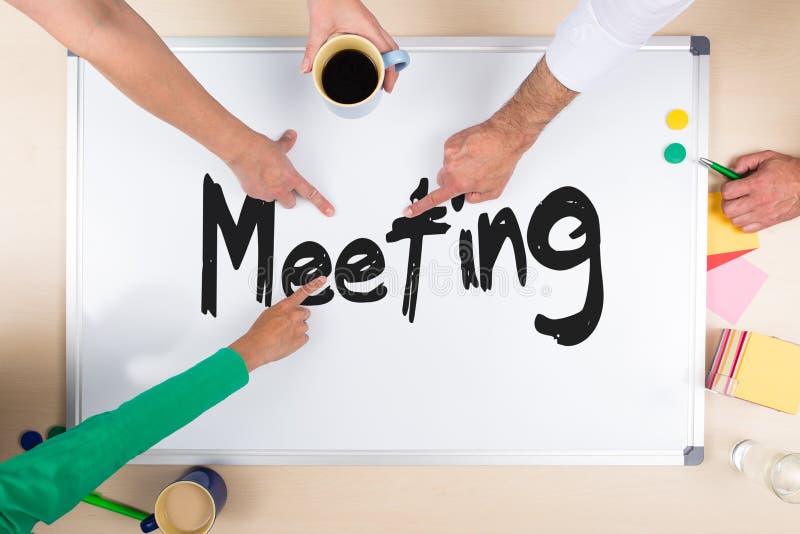
An assembly is a meeting of people who come together for a specific purpose, such as voting or making decisions. It can be a public or private event, and the attendees can be members of an organization or the public. Assemblies are often held in a specific venue, such as a school or a government building.
12. Colloquium

A colloquium is a meeting where people discuss and exchange ideas on a particular topic in an academic or professional setting. It can be a one-time or recurring event, and the attendees can be scholars, researchers, or professionals. Colloquia are often held in a specific venue, such as a university or a research center.
13. Caucus
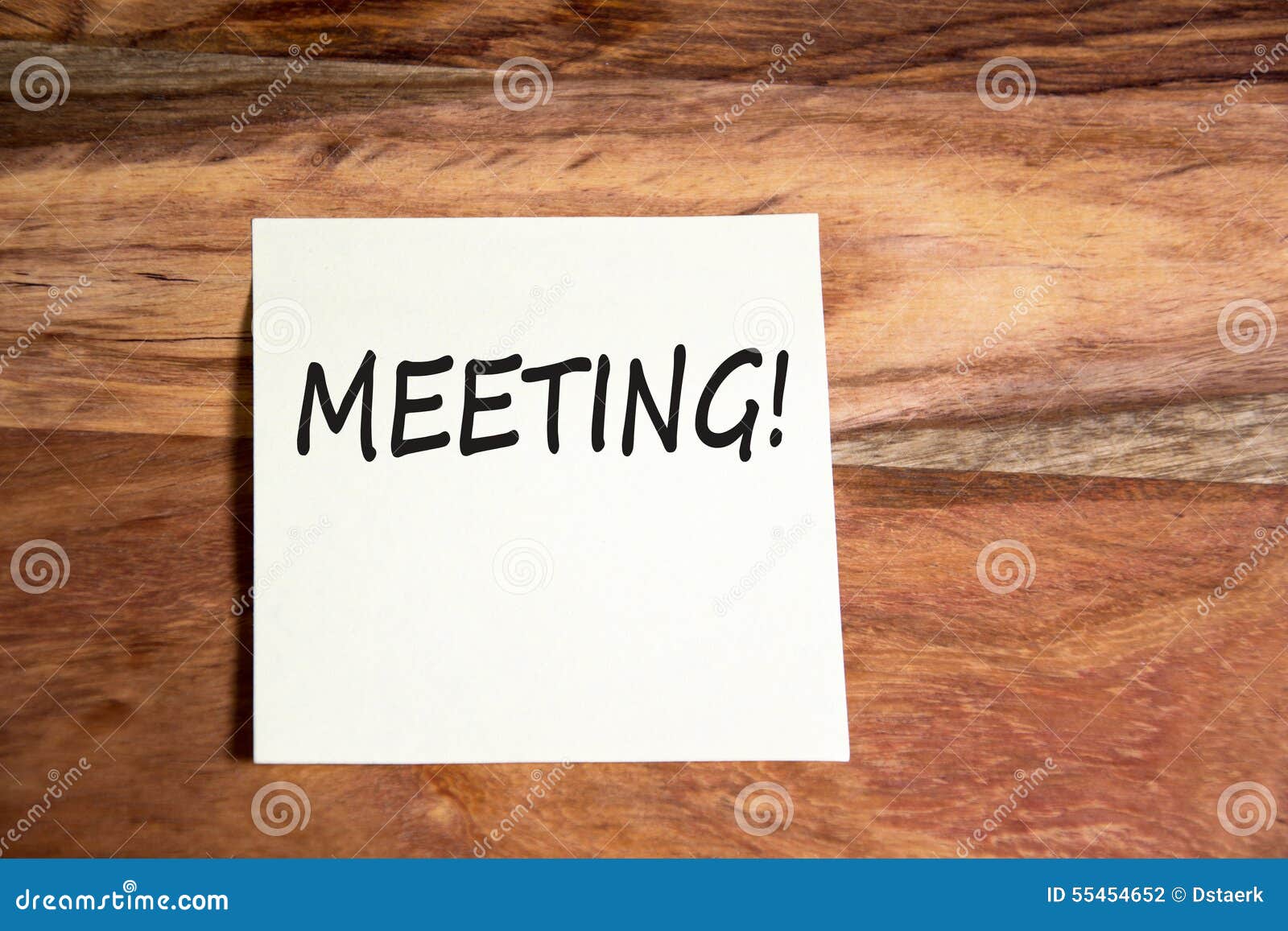
A caucus is a meeting of a political party or group to select candidates or make decisions on policy or strategy. It can be a public or private event, and the attendees can be party members or delegates. Caucuses are often held in a specific venue, such as a community center or a government building.
14. Panel

A panel is a meeting where a group of experts or professionals discuss and share their knowledge on a particular topic. It can be a one-time or recurring event, and the attendees can be academics, researchers, or professionals. Panels are often held in a specific venue, such as a conference room or a university.
15. Retreat

A retreat is a meeting where people come together in a relaxed and informal setting to discuss and reflect on a particular issue or topic. It can be a one-day or multi-day event, and the attendees can be colleagues, friends, or family members. Retreats are often held in a specific venue, such as a resort or a retreat center.
16. Workshop

A workshop is a meeting where participants learn and practice specific skills or techniques related to a particular topic. It can be a one-time or recurring event, and the attendees can be professionals, students, or enthusiasts. Workshops are often held in a specific venue, such as a classroom or a studio.
17. Get-Together

A get-together is a casual meeting of friends, family, or colleagues to socialize and have fun. It can be a one-time or recurring event, and the attendees can bring food, drinks, or games. Get-togethers are often held in a specific venue, such as someone's home or a park.
18. Encounter

An encounter is a chance or unexpected meeting between two or more people. It can be a social or business event, and the participants can be strangers or acquaintances. Encounters can happen anywhere, such as on the street, in a store, or at a party.
19. Conclave
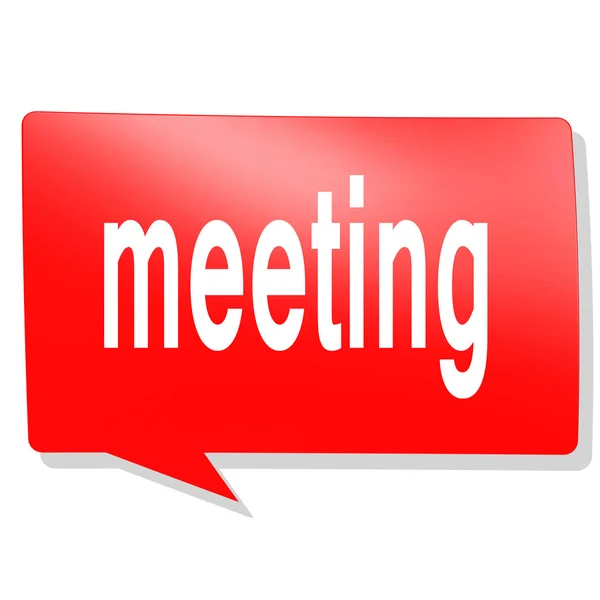
A conclave is a meeting of leaders or representatives from a particular group or organization to make important decisions. It can be a private or secret event, and the attendees can be elected or appointed officials. Conclaves are often held in a specific venue, such as a church or a government building.
20. Rendezvous

A rendezvous is a meeting between two or more people at a specific time and place. It can be a social or business event, and the participants can be friends, colleagues, or clients. Rendezvous can happen anywhere, such as a restaurant, a park, or a hotel.
In conclusion, there are many words you can use instead of "meeting" to make your communication more varied and interesting. Each word has its own connotations and nuances, so choose the one that best suits your purpose and audience. Whether it's a conference, a huddle, or a rendezvous, a good meeting is always about effective communication and collaboration.
Related video of Another Word For Meeting
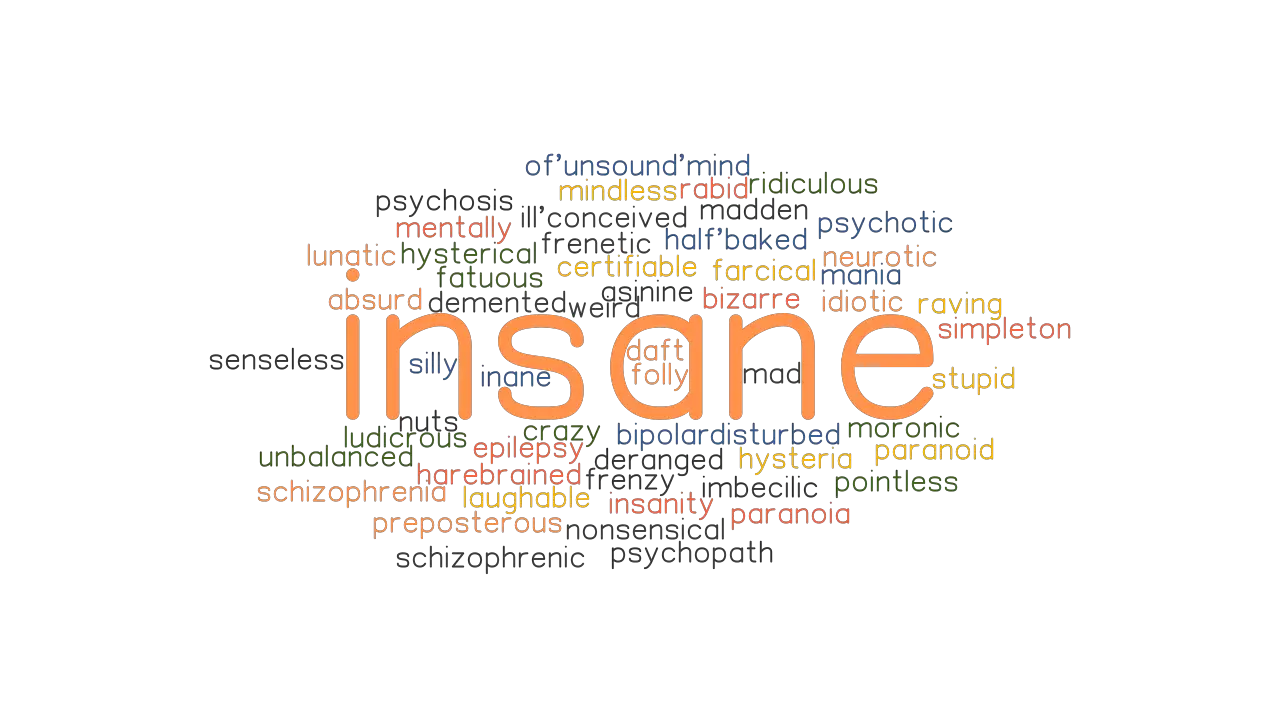
When it comes to discussing mental health, the words we use can have a powerful impact. One term that has been widely used in the past is "insane." However, this word is not only outdated but can also be stigmatizing and hurtful to those who live with mental illness. In this article, we will explore some alternative words for "insane" and discuss the importance of using accurate and respectful language when discussing mental health.
Why Using Accurate Language Matters
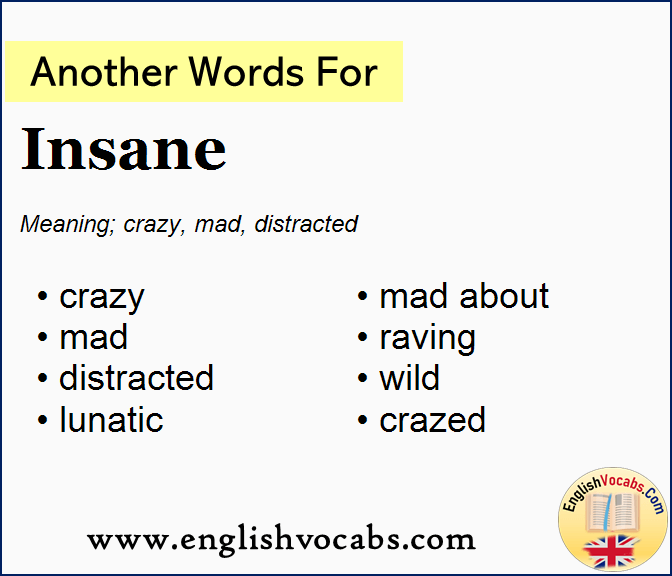
The language we use can shape our beliefs and attitudes towards mental health. Using stigmatizing or inaccurate language can reinforce negative stereotypes and create barriers for people seeking help. It's important to use accurate and respectful language to reduce the stigma surrounding mental illness and promote understanding and empathy.
Alternative Words for "Insane"

There are many alternative words and phrases that can be used instead of "insane" when discussing mental health. Here are a few examples:
- Psychotic
- Mentally ill
- Living with a mental health condition
- Experiencing mental distress
- Having a mental health challenge
It's important to note that different people may prefer different terminology to describe their experiences with mental health. It's always best to ask someone how they prefer to be described rather than assuming a particular label or diagnosis.
The Importance of Using Person-First Language
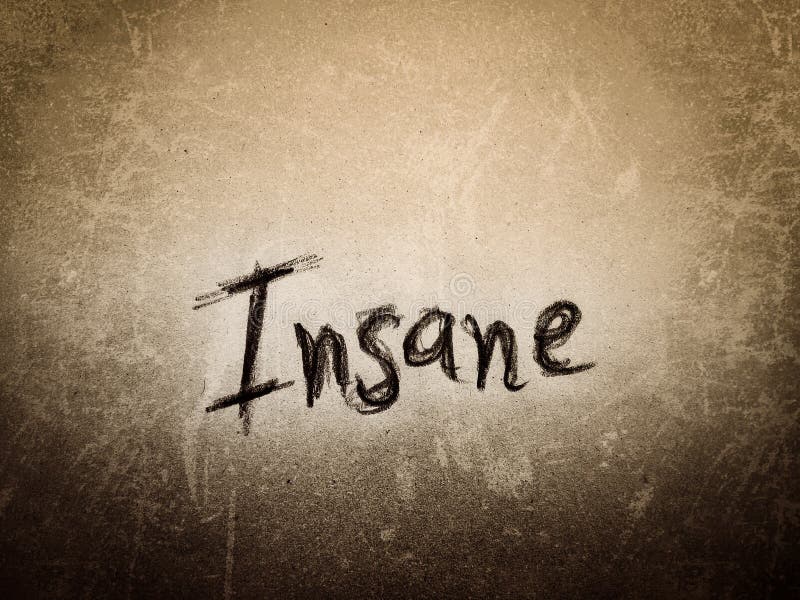
Another important aspect of using accurate and respectful language when discussing mental health is using person-first language. This means emphasizing the person, not the diagnosis or condition. For example, instead of saying "a schizophrenic," it's more respectful to say "a person living with schizophrenia." This puts the focus on the person, not their diagnosis, and helps reduce stigma and negative stereotypes.
Other Ways to Promote Mental Health Awareness
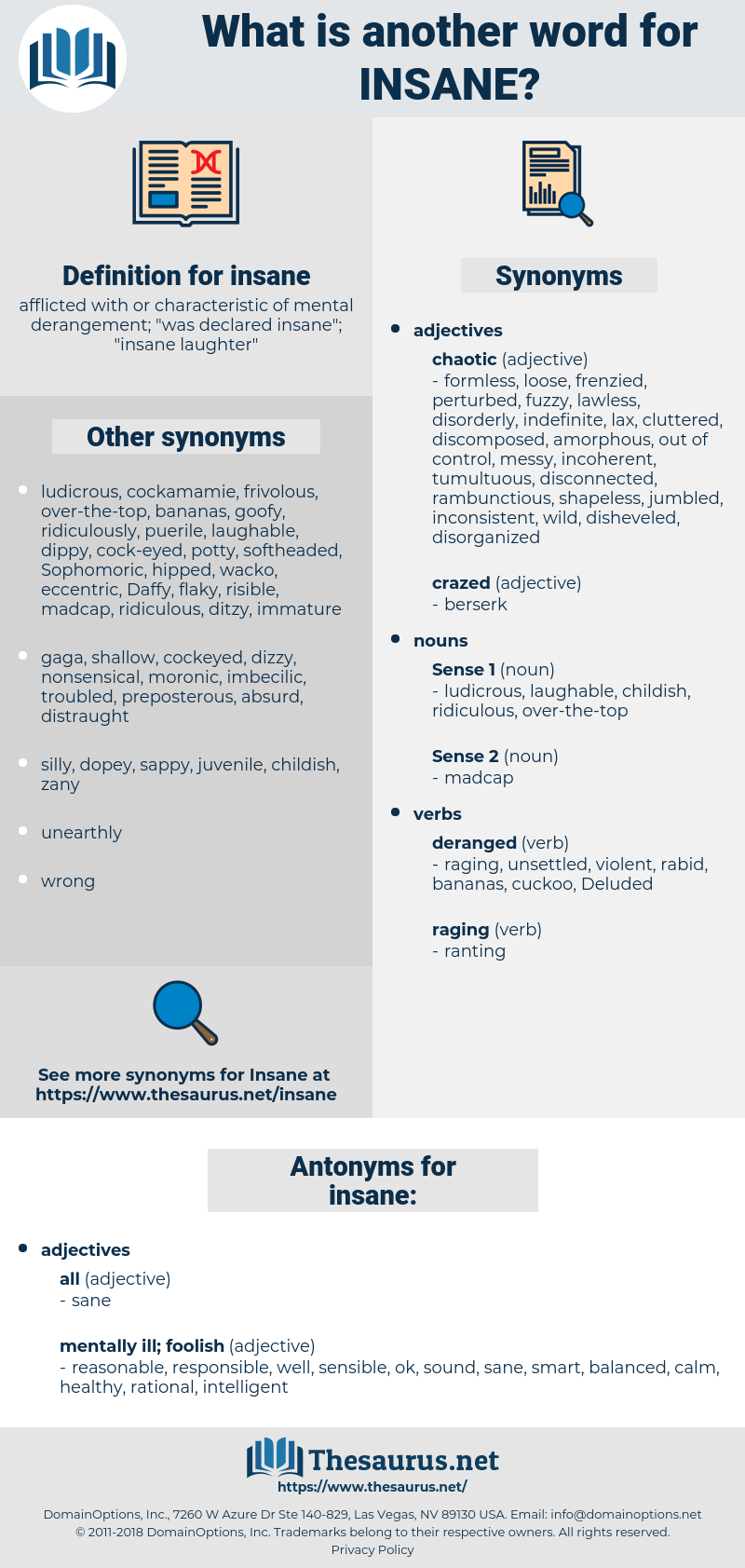
Using accurate and respectful language is just one way to promote mental health awareness and reduce stigma. Here are a few other ways you can make a difference:
- Be open to discussing mental health with others
- Listen without judgment and offer support
- Learn more about mental health and the challenges people face
- Advocate for better access to mental health services and support
Conclusion
When it comes to discussing mental health, the words we use matter. Using alternative words for "insane" and using person-first language can help reduce stigma and promote understanding and empathy. By being mindful of the language we use and promoting mental health awareness, we can help create a more supportive and inclusive society for all.